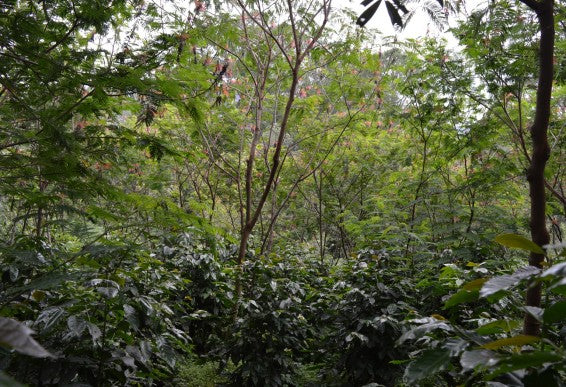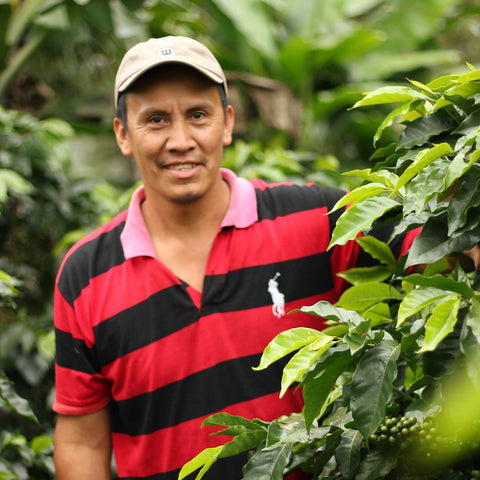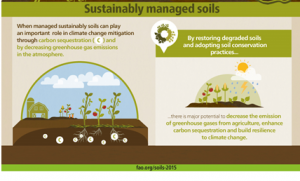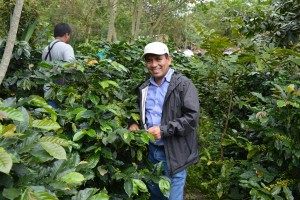
Higher Grounds is one of 23 North American roasters who collectively own Cooperative Coffees, our green coffee importer. The original version of this post originally appeared on Cooperative Coffees' blog and was written by CC's Sustainability Director, Monika Firl. It has been edited for clarity.
//
In February 2017, Cooperative Coffees announced the launch of our Carbon, Climate and Coffee Initiative.
We believe in taking responsibility for our impact on global coffee producers and their communities. Calculating and tracking our collective carbon footprint and contributing a corresponding financial “offset” amount to our producer-support fund links us to a broader conversation around climate justice. And directly investing in carbon-sequestering and other environmental projects contributes to the health and sustainable development of producer communities, while strengthening our connections across the supply chain.
We hope to create a positive example of how our industry could become regenerative. What began in 2013, as a CoopCoffees internal “5-cents for Roya” emergency-relief fund, has grown into an increasingly collaborative initiative. From 2014–2017, CoopCoffees partnered with the Root Capital/Progreso Network Climate Resiliency Match Fund. This resulted in some US$650,000 in leveraged funding invested with 11 producer partners across Latin America to invest in improved compost production, field renovation, and technical trainings in organic practices. During that same period, CoopCoffees hosted four regional events to support farmer-to-farmer learning, involving 20 farmer cooperatives and more than 12,500 coffee farmer families across Latin America.
Along the way, we’ve discovered an incredible capacity within our network of producer partners for climate resiliency and adaption. For example, in northern Peru, Sol y Cafe (pictured above) is promoting field renovation and pruning practices that have resulted in extraordinary tree vitality and resiliency. In Honduras, the COMSA cooperative's field curriculum focuses on the 5Ms (Organic Matter, Micro-organisms, Minerals, Living Molecules and Grey Matter) – and trains other farmers via their Diplomado Organico workshops. We’ve seen positive impacts across our network as producers adapt their own local practices to face ever-changing landscapes.
Coffee roaster/owners of Cooperative Coffees now pay a “voluntary carbon tax” in order to build this environmental-service fund, which is invested directly with our coffee-producer partners. We prioritize work that encourages reforestation, soil regeneration, and experimentation and learning about other “carbon-capture enhancing” practices.
This investment is improving our own understanding of climate impact and discovering comparative energy efficiencies between roasters; enhancing climate resiliency and productivity with our producer partners; achieving more stable supply and reducing risk for both producers and roasters; and finally, achieving our ultimate goal of greater social, environmental and economic impact for our producer partner families, communities and organizations.
CoopCoffees roaster/owners already have a long history of proactively pushing the environmentalist envelope. Many use alternative energy sources to power their installations, invest in the most “emission-free” possible roasting equipment, insist on sustainable packaging, implement bio-gas or bicycle delivery of roasted coffee, and support local and international environmental projects. We have already been working hard to soften our respective carbon footprints.

But with this new initiative, we want to acknowledge the environmental services that our organic farming partners already provide and encourage them to continue in their efforts. What we haven’t been able to reduce in CO2 emissions, we can now attempt to offset through community-based projects with our producer partners. The Carbon, Climate and Coffee Initiative is demonstrative of our most sincere intentions to achieve environmental responsibility through local and global actions.
We hope to illustrate with coffee producers and consumers alike that climate solutions exist – and that they can be as close as the soil under our feet, and the coffee mug in our hands.
//
Monika Firl is Coop Coffees’ Director of Sustainability. She has worked with a variety of locally based development projects, while living in Central America and Mexico from 1991 to 2000. Monika holds a Master’s Degree in Journalism as well as a BA in International Relations and German.


